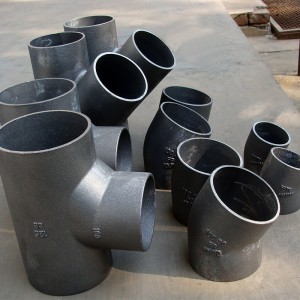- Afrikaans
- Albanian
- Amharic
- Arabic
- Armenian
- Azerbaijani
- Basque
- Belarusian
- Bengali
- Bosnian
- Bulgarian
- Catalan
- Cebuano
- China
- China (Taiwan)
- Corsican
- Croatian
- Czech
- Danish
- Dutch
- English
- Esperanto
- Estonian
- Finnish
- French
- Frisian
- Galician
- Georgian
- German
- Greek
- Gujarati
- Haitian Creole
- hausa
- hawaiian
- Hebrew
- Hindi
- Miao
- Hungarian
- Icelandic
- igbo
- Indonesian
- irish
- Italian
- Japanese
- Javanese
- Kannada
- kazakh
- Khmer
- Rwandese
- Korean
- Kurdish
- Kyrgyz
- Lao
- Latin
- Latvian
- Lithuanian
- Luxembourgish
- Macedonian
- Malgashi
- Malay
- Malayalam
- Maltese
- Maori
- Marathi
- Mongolian
- Myanmar
- Nepali
- Norwegian
- Norwegian
- Occitan
- Pashto
- Persian
- Polish
- Portuguese
- Punjabi
- Romanian
- Russian
- Samoan
- Scottish Gaelic
- Serbian
- Sesotho
- Shona
- Sindhi
- Sinhala
- Slovak
- Slovenian
- Somali
- Spanish
- Sundanese
- Swahili
- Swedish
- Tagalog
- Tajik
- Tamil
- Tatar
- Telugu
- Thai
- Turkish
- Turkmen
- Ukrainian
- Urdu
- Uighur
- Uzbek
- Vietnamese
- Welsh
- Bantu
- Yiddish
- Yoruba
- Zulu
Jul . 28, 2024 11:28 Back to list
Manufacturing Cast Silicon Aluminum Heat Exchangers for Efficient Hot Water Boiler Applications
Cast Silicon Aluminum Heat Exchangers for Hot Water Boiler Factories
In the realm of thermal management, heat exchangers play a pivotal role in ensuring the efficient transfer of heat between fluids, thereby optimizing energy consumption. Among the various materials used in heat exchangers, cast silicon aluminum has emerged as a notable choice, particularly for hot water boiler applications. This alloy not only offers remarkable thermal conductivity, but also provides enhanced resistance to corrosion and thermal fatigue, making it increasingly popular in boiler factories worldwide.
The Importance of Heat Exchangers
Heat exchangers serve as vital components in numerous industrial applications, including heating, cooling, and thermal storage systems. In hot water boiler factories, the efficiency of heat exchangers directly impacts the overall performance of the boilers. As energy costs continue to rise, the demand for efficient heat exchange technologies has become critical. This is where cast silicon aluminum heat exchangers offer significant advantages.
Advantages of Cast Silicon Aluminum
1. Excellent Thermal Conductivity One of the primary reasons for using cast silicon aluminum in heat exchangers is its exceptional thermal conductivity. This property enables rapid heat transfer, which is essential for maintaining the desired temperature in hot water boilers. The faster the heat can be transferred, the more efficient the boiler operates.
2. Corrosion Resistance Hot water environments often expose materials to corrosive elements, which can lead to premature failure. Cast silicon aluminum alloys incorporate silicon, which imparts a natural resistance to oxidation and corrosion. This characteristic ensures longevity and reliability, minimizing maintenance costs and downtime in boiler operations.
cast silicon aluminum heat exchanger for hot water boiler factories

3. Lightweight and Moldable The casting process for silicon aluminum allows for intricate designs that can optimize flow patterns within heat exchangers. Additionally, the alloy is lightweight compared to traditional metal options like copper or steel, which can reduce the overall weight of heat exchanger systems. This is particularly advantageous in industrial setups where weight constraints are a consideration.
4. Thermal Fatigue Resistance Hot water boilers typically undergo fluctuating temperature cycles. Cast silicon aluminum exhibits excellent resistance to thermal fatigue, reducing the risk of cracking or failure due to thermal stress. This durability is crucial for maintaining consistent performance in demanding operating conditions.
Applications in Hot Water Boiler Factories
The adoption of cast silicon aluminum heat exchangers is not just limited to performance improvements; it also extends to innovative design possibilities. Manufacturers are increasingly utilizing computer-aided design (CAD) technology to optimize the geometry of heat exchangers, acquiring enhanced performance metrics through precision engineering. With improved designs, these heat exchangers can adapt to various boiler types, ensuring compatibility and versatility.
Furthermore, the growing emphasis on energy efficiency and sustainability in industrial processes aligns perfectly with the benefits offered by cast silicon aluminum heat exchangers. As factories strive to reduce their carbon footprint, the ability of these heat exchangers to work effectively with lower flow rates and temperatures can lead to significant energy savings.
Conclusion
In conclusion, cast silicon aluminum heat exchangers represent a forward-thinking solution for hot water boiler factories. Their superior thermal conductivity, corrosion resistance, lightweight properties, and resilience to thermal fatigue make them an ideal choice for modern energy-efficient systems. As the industry continues to prioritize sustainable practices, the role of advanced materials like cast silicon aluminum in enhancing the efficiency and longevity of heat exchangers will undoubtedly grow. With ongoing research and innovation, the future of heat exchanging technology looks more promising than ever, paving the way for smarter and greener industrial operations.
-
8mm Thin-Walled Cast Steel Manhole Cover Pallet Bottom Ring | Durable
NewsAug.04,2025
-
Premium Cast Iron Water Main Pipe: Durable, Corrosion-Resistant
NewsAug.03,2025
-
Durable Cast Iron Water Mains | AI-Optimized Systems
NewsAug.02,2025
-
High-Efficiency Propane Boiler for Baseboard Heat | Save Energy
NewsAug.01,2025
-
Premium Source Suppliers for Various Gray Iron Castings
NewsJul.31,2025
-
Durable Cast Iron Water Main Pipes | Long-Lasting
NewsJul.31,2025


